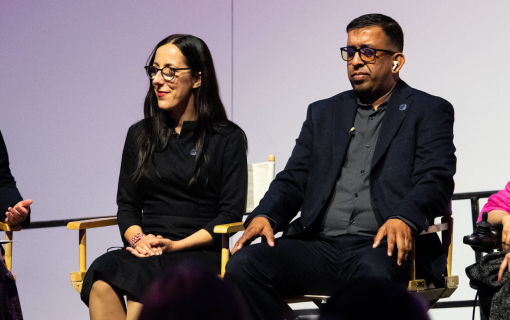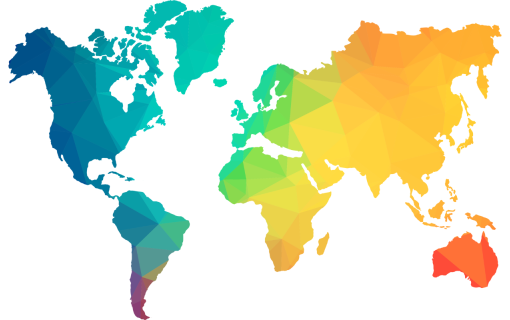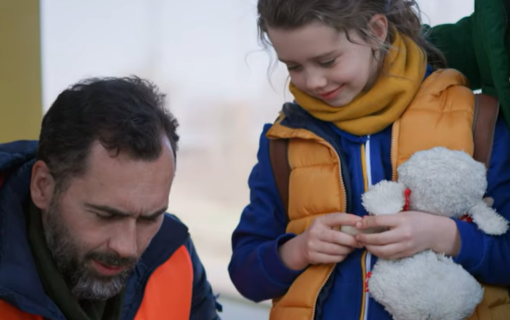Fostering Partnerships to Increase Political Access in Haiti
One of IFES’ main goals in Haiti is to increase access to the political process for persons with disabilities. In order to do so, IFES is collaborating with the election commission of Haiti, the Conseil Électoral Provisoire (CEP), other government entities and civil society to remove barriers and promote equal access.
Alessandra Rossi, IFES Chief of Party in Haiti, sheds light on IFES’ work in the island nation.
Please tell us about IFES’ work on inclusion and empowerment in Haiti.
IFES’ overall mission in Haiti is to strengthen the capacity of the Transitional College of the Permanent Electoral Council (CTCEP) to communicate more effectively and efficiently with the Haitian electorate and stakeholders.
One way IFES is doing this, is by conducting an assessment on election access barriers. This assessment will inform the CTCEP and other stakeholders about the challenges faced by persons with disabilities in exercising their right to vote.
We are also establishing an election access working group. IFES will reach out to local and international stakeholders to form this body so members can share experiences, strategize and promote activities that reduce barriers for persons with disabilities in becoming active participants in the electoral process. IFES will initiate the process of forming a working group by holding meetings with local stakeholders and development partners to identify participants. IFES will work with the CTCEP, the Secretary of State on Disabilities, the United Nations Development Programme, the United Nations Stabilisation Mission in Haiti (MINUSTAH) and other counterparts to identify synergies among participants.
IFES will educate CTCEP staff on the rights of persons with disabilities and how to administer the vote to this population. We will also develop a disability inclusion strategy with CTCEP. To this end, IFES will eventually deploy a disabilities expert to work with the CTCEP throughout this process.
What has IFES’ disability work with the CTCEP been like so far?
IFES held initial conversations with CTCEP leadership and technical staff on strategies to promote the inclusion of persons with disabilities in the electoral process. During these discussions, IFES learned that the leadership of the CTCEP and the Department of Integration for People with Disabilities (BSEIPH) had never met.
To correct this, IFES got both groups in the same room and meetings have taken place already. During the first meeting, CTCEP representatives expressed commitment to inclusion policies for voters with disabilities. IFES also presented its program and future activities. This meeting represents a beginning of cooperation and exchange, which will impact inter-institutional coordination as the CTCEP moves forward with its communication and inclusion strategy.
At this stage, CTCEP facilities are not accessible to persons with disabilities. BSEIPH has a team of technical experts on barriers in public spaces; those experts are used to audit all national institutions and present recommendations on improving access. This expertise will be key in moving forward with our disability initiatives.
Before we started our work, what had been done in the past in this area?
Not much! During the last electoral process, there was a tentative plan to facilitate access for blind voters. Unfortunately, this project was never realized. However, the previous election commission increased awareness about persons with disabilities through banners, flyers and videos.
What are some of the challenges Haiti faces when it comes to increasing access to the electoral process for persons with disabilities?
There are many: physical barriers, mobilization of civil society, lack of funds to invest in inclusion, lack of information about how important it is to include this group of voters, etc.
What is the state of civil society in Haiti when it comes to advocating for persons with disabilities?
It is very active! There are networks and associations working in this area, such as the National Associative Network for the Integration of Disabled Persons. Additionally, there are international programs supported by the United States Agency for International Development, the Organization of American States, the United Nations and international nongovernmental organizations.
What laws and regulations exist in the country to protect persons with disabilities?
In March 2013, Haiti adopted the Law on Integration of Disabled Persons. This new law provides the legal framework to protect the rights of persons with disabilities.
An important aspect of this law is that it prohibits discrimination against persons with disabilities in the employment sector. It even mandates the State to integrate them into public service. Institutions in the private sector with more than 20 employees must have persons with disabilities representing two percent of their workforce.
IFES recently signed a historic memorandum of understanding in the country. Please tell us about it.
On August 26, 2013, IFES and CTCEP signed a memorandum of understanding (MoU). The agreement encompasses IFES’ technical assistance to strengthen CTCEP internal communications, as well as programming to increase the inclusion of persons with disabilities and women in the electoral process.









